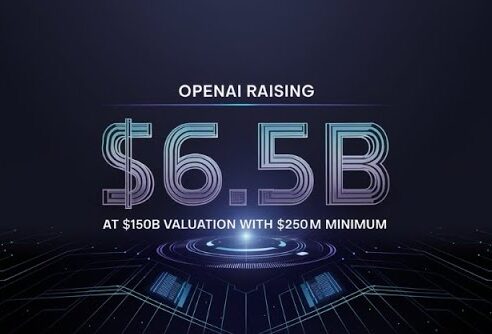Meta Unveils New VR Headset at Silicon Valley Event Amidst OpenAI and Google Antitrust Developments
Meta’s latest Silicon Valley event dropped some exciting new gadgets, including the super-affordable Quest 3S VR headset and next-gen smart glasses that could one day replace your phone. But that’s not all—OpenAI is making waves with a record-breaking $6.5 billion funding round, and Google is facing off against the U.S. government in a heated antitrust trial. With innovative devices and industry shakeups, the world of tech just got a whole lot more interesting!
Meta Silicon Valley event showcases new affordable VR Headset and Orion smart glasses

Let’s begin with unpacking product details stated directly by Meta. Meta announced the Quest 3S, a new VR headset with similar features and performance to the Quest 3, priced at $299.99, making it a more affordable option for newcomers to mixed reality. Quest 3S offers a range of immersive experiences, including gaming, multitasking, fitness apps, and media streaming, while benefiting from enhanced Passthrough and spatial audio. Meta has updated the Horizon OS to support 2D apps like YouTube and Instagram and introduced new features like Travel Mode for use in transit and better Passthrough realism. The Meta Quest 3S supports thousands of existing apps and games, including upcoming exclusive titles, while also providing improved performance and visuals from Quest 3-specific updates. Meta reduced the price of the 512GB Quest 3 from $649.99 to $499.99, offering a premium headset with four times the storage, 4K+ Infinite display, and superior lenses for tech enthusiasts!
Next, let’s dive into discourse about Meta at the Silicon Valley Event

– Meta’s New Product Lineup: Meta revealed several new products at its Silicon Valley event, including the affordable Quest 3S VR headset, advanced smart glasses with holographic tech, and updates to its AI assistant, Meta AI.
– AI Integration Across Platforms: The upgraded Meta AI now features celebrity voices like Awkwafina and John Cena. It will be available across major Meta apps, including Instagram, WhatsApp, and Facebook, offering more personalized user interactions.
– Focus on Augmented Reality Glasses: Meta introduced “Project Orion,” a prototype for AR glasses with integrated digital technology, aiming to revolutionize social interaction by enabling users to connect through avatars as if they were physically present.
– New Smart Glasses Features: The new smart glasses include real-time translation for several languages and assistive features for people with vision impairments through AI-powered audio descriptions.
– Long-Term Vision: Mark Zuckerberg envisions that these enhanced smart glasses could eventually replace smartphones, offering hands-free control via voice commands, touch, or a neural interface wristband.
OpenAI Fundraises $6.5B

OpenAI is nearing the end of a record-breaking $6.5 billion venture capital fundraising round, valuing the company at $150 billion. Led by Thrive Capital with a $1.25 billion investment, other major participants are expected to include Apple, Microsoft, and Nvidia. However, Sequoia Capital, a previous OpenAI backer, has opted to support a new AI startup, Safe Superintelligence, instead. OpenAI has made headlines for striking content deals with major publishers to train its AI, though it also faces lawsuits over content scraping. Venture capitalists are prioritizing AI companies with proven revenue models while remaining cautious of unrealistic forecasts and AI offerings that oversimplify creative workflows.
Google Anti-Trust Case Continued

The U.S. government has accused Google of monopolizing the ad tech market, particularly after its 2008 acquisition of DoubleClick, which gave Google control over critical ad tech infrastructure. The Department of Justice (DOJ) claims Google used this dominance to stifle competition, such as by limiting its ad tools to only bid on its own system, locking out rivals. Additionally, the DOJ argues Google imposed restrictive rules on publishers, like forcing them to maintain the same minimum price for ads across platforms, benefiting Google.
Witnesses testified that Google charges publishers a 20% fee to use its ad exchange, which inflates costs for advertisers and reduces publisher revenue. The DOJ says this harms consumers by driving up product costs and draining revenue from ad-supported websites. The government seeks to break up Google’s ad tech business, but Google argues the market remains competitive, pointing to rivals like Facebook and Amazon. The trial is ongoing, with a decision expected after several months.
Final Thoughts
The unveiling of Meta’s new VR headset and smart glasses, paired with major industry moves like OpenAI’s fundraising and Google’s ongoing antitrust trial, shows how fast the tech industry is evolving. Meta is charging ahead with groundbreaking innovations, while AI powerhouses and digital giants navigate high-stakes challenges. The future of tech is bound to be even more thrilling!









